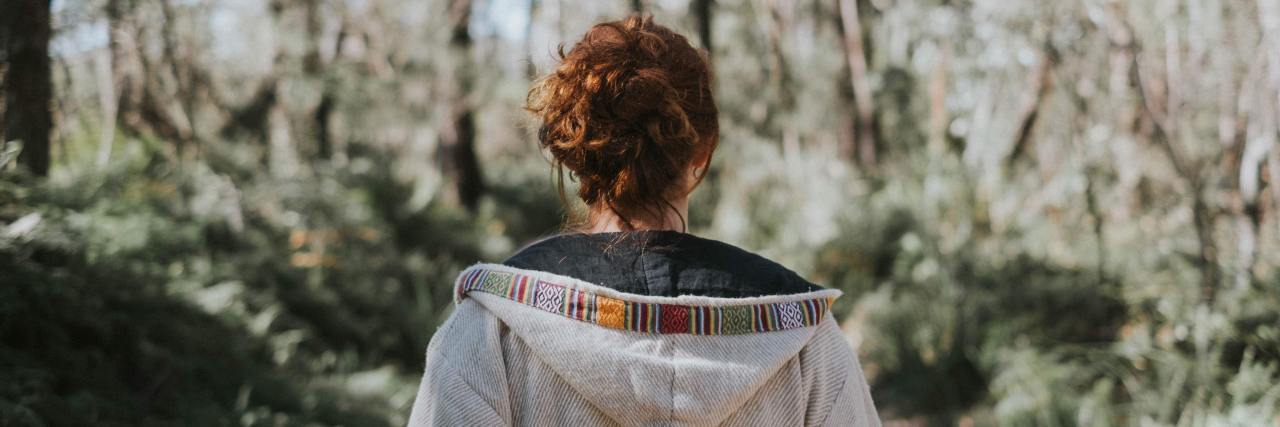How 'Yes, and' Thinking Is Helping Me Fight Depression During COVID-19
These last few weeks of social isolation, I don’t think I’ve been alone in experiencing the most confusing mix of depression, fear and frustration I think I’ve ever felt before. My mind feels like a constant battle.
The emotions are like waves. One moment, I am able to tell myself everything is going to be OK, that I just need to survive the present. The next moment, I find myself shaking, unable to stop sobbing as I wonder if and how I’ll ever survive these emotions all at once: depression, fear, uncertainty, frustration, loneliness, defeat, helplessness, disappointment. The list goes on and on.
As someone who struggles with depression, even in my darkest moments, I think there’s always at least a small whisper in the back of my mind telling me to try to challenge the thoughts, that there’s even just a 10% chance the thoughts aren’t true. But, I’ve yet to figure out how to accept the emotion itself. How can I possibly just sit with the agonizing depression, helplessness or defeat without doing something to make it pass? I can’t help but think there has to be something I did to cause the emotion. There has to be something I should be doing to make everything better.
In this terrifying time of an international pandemic, maybe I didn’t do anything to cause the coronavirus (COVID-19), the new viral strain in the coronavirus family that affects the lungs and respiratory system, but it feels like my negative emotions are entirely my fault. It feels like I’m selfish for feeling debilitated by the sadness, fear and helplessness because there are so many ways in which I am lucky. Clearly, I should just get over my negative emotions. They aren’t helping anyone and they are focusing on the bad when I still have so much good. Still, forcing myself to ignore the sadness or fear hasn’t made the emotions any less unbearable.
Throughout my mental health journey, I’ve learned while I may still have some work to do in accepting my emotions, for better or worse, I have mastered “either-or” thinking. In my mind, I’m either happily functioning or I’ve made no progress with my depression. I’m either engaged in every social obligation, or I’m antisocial. I’m either content, or I’m selfish.
And yet, during the confusion of the COVID-19 pandemic, I’m starting to understand the difference between this “either-or” thinking and the “yes, and” thinking. Throughout this pandemic, there are so many things I am constantly grateful for, and yet there are so many things I don’t think I’ve ever ached for so much.
As a recent graduate who moved across the country, I am so grateful I’m living away from my family so I can’t get them sick, and yet I wish I could be closer to the support of my close friends and family. I am so grateful I have a college degree and a job I enjoy, and yet with everything going on in the world, sometimes I can’t force myself to focus because everything seems so pointless. I am so grateful to have a job that allows me to self-isolate, and yet as a healthy 22-year-old, I can’t help but feel guilty thousands of people are forced to work while I’m allowed to stay at home. I am so lucky for so many things, and yet, I’m still struggling beyond words with depression on top of fear, helplessness and exhaustion.
If the pandemic is teaching me anything, it’s that maybe that’s OK. The pandemic has shifted everyone’s lives, and no matter how grateful we are, we are going to struggle. Maybe sometimes negative emotions are unavoidable. While accepting the emotion doesn’t always make the experience any easier, it stops the emotion from escalating into self-hate or from becoming further evidence of being a “bad person.”
For me, sitting with gratitude and whatever confusing mix of emotions I’m experiencing gives me permission to cope however I need. It’s an acceptance that “No, everything is not OK right now, and it’s not a failure to feel that way. Right now, it’s OK to listen to what I need and trust eventually things will be OK again.”
Struggling with mental health due to COVID-19? Check out the following articles from our community:
- What You Should Know About Social Distancing During COVID-19
- How Can You Tell the Difference Between Anxiety and COVID-19 Symptoms?
- Feeling Calm in the Midst of the Coronavirus Pandemic Might Be a Trauma Response
- 6 Tips If You’re Anxious About Being Unable to Go to Therapy Because of COVID-19
- 7 Things to Do If Social Distancing Is Triggering Your Depression
Unsplash image by Kane Taylor

